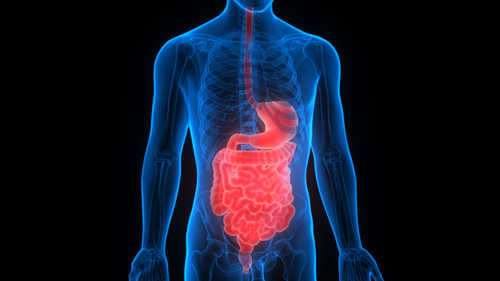All disease begins in the gut.
-Hippocrates
Hippocrates stated the above quote more than 2,000 years ago, but we’re only now coming to understand it fully. Health research since the late 1990s has revealed that a healthy gut is crucial to overall health. In fact, we are learning each day that an unhealthy gut contributes to a wide range of diseases including diabetes, obesity, rheumatoid arthritis, autism spectrum disorder, depression, and chronic fatigue syndrome. In this next century, there will be an explosion of medical treatments developed to restore intestinal health and the integrity of the gut barrier. But why wait until then? What can we do about it now?
Our gut is home to approximately 100,000,000,000,000 (100 trillion) microorganisms. Because that is such a big number, our human brains can not really comprehend it. With over 400 known diverse bacterial species, the human gut contains 10 times more bacteria than all the human cells in the entire body. Notably, you could say that we are more bacterial than we are human! We’ve only recently begun to understand the extent of the gut flora’s role in human health and disease.
The gut flora promotes normal gastrointestinal function, provides protection from infection, regulates metabolism, and comprises more than 75% of our immune system. Dysregulated gut flora has been linked to diseases ranging from autism and depression to autoimmune conditions like Hashimoto’s, inflammatory bowel disease, and type 1 diabetes.
 What causes an unhealthy gut?
What causes an unhealthy gut?
- Antibiotics and other medications like birth control and NSAIDs
- Diets high in refined carbohydrates, sugar, and processed foods
- Diets low in fermentable fibers
- Dietary toxins like wheat and industrial seed oils that cause leaky gut
- Chronic stress
- Chronic infections
- Formula fed as an infant instead of breast-fed
Of these factors listed above, antibiotics have the most profound harmful effect on the gut. An antibiotic will rapidly reduce the number of gut flora and can change the diverse composition of the microbiota (the ecological community) of the body. This alteration can cause a shift in hormone production and nutrient absorption and can allow harmful bacterial strains to gain a foothold in the gut. The effect of frequent antibiotic use in children has been linked to learning disabilities, ADHD, eczema, and many other syndromes and diseases.
How does an unhealthy gut cause disease?
For years we have understood that when the bacteria in the gut shift from a healthy diverse community of friendly microbes to a less-than-optimal environment, our health suffers. How this process happens is just beginning to be understood. The gut is a hollow tube that passes from the mouth to the anus. When food is broken down, only selected particles enter the body and into the bloodstream. This means that technically, some of the food we eat may never even enter into our bodies! Anything that goes into the gut and is not absorbed will pass right on through the other end. This is in fact one of the most important functions of the gut: to prevent indigestible foods and other foreign substances from entering into the body. If the selectivity of the gut breaks down, we will have a more permeable intestinal wall, commonly referred to as a “leaky gut.”
Leaky Gut Syndrome
When the intestinal barrier becomes permeable (i.e. “leaky gut syndrome”), large protein molecules escape into the bloodstream. Since these proteins do not belong outside of the gut, the body mounts an immune response and attacks them. Studies show that these attacks play a role in the development of autoimmune diseases such as Hashimoto’s and type 1 diabetes. This effectively is a case of mistaken identity. The immune system thinks that it is attacking a foreign substance, but in fact it is attacking the thyroid cells (Hashimoto’s), the pancreatic cells (Type 1 diabetes), the intestinal cells (Crohn’s disease), etc. In the past, mainstream researchers who favored genetics as the cause of these diseases would laugh at the idea of leaky gut syndrome. Today many conventional researchers and doctors are revealing results of their studies showing that a leaky gut is a major contributor to autoimmune diseases.
A crucial point to understand is that you do not have to have gut symptoms to have a leaky gut. Someone with leaky gut may have gut symptoms such as irritable bowel syndrome, chronic constipation, and/or bloating. However, keep in mind that leaky gut can also manifest simply as eczema, psoriasis, heart disease, mental illness, depression, or an autoimmune condition.
The Gluten-Leaky Gut Connection
One reason we recommend reducing or eliminating gluten intake is because gluten contains a protein called gliadin, which has been shown to increase zonulin production. Researchers have identified that zonulin increases intestinal permeability in humans. Zonulin has been linked to most if not all autoimmune diseases, including celiac disease, type 1 diabetes, multiple sclerosis, rheumatoid arthritis, and inflammatory bowel disease. Researchers have also found that they can induce type 1 diabetes almost immediately in animals by exposing them to zonulin. Researchers do not believe that everyone who ingests gluten will develop a leaky gut. Since we do not know who will and who will not develop the syndrome, my personal recommendation is that gluten intake should be minimal to none to stay on the safe side.
What is the takeaway?
Leaky gut and bad gut flora are common because of our modern lifestyle. If you have a leaky gut, you probably have bad gut flora, and vice versa. When your gut flora and gut barrier are impaired, you will become inflamed. This systemic inflammatory response then leads to the development of autoimmunity. While leaky gut and bad gut flora may manifest as digestive trouble, in many people they do not. To adequately address these conditions, you must rebuild healthy gut flora and restore the integrity of your intestinal barrier. This is especially true if you have any kind of autoimmune disease, whether you experience digestive issues or not.
How To Heal The Gut
The most obvious first step in maintaining a healthy gut is to avoid all of the things I listed above that destroy gut flora and damage the intestinal barrier. However that is not always possible, especially in the case of chronic stress and infections. Not having control over whether we were breast-fed or not also is a factor. The following steps will help you to improve the health of your gut:
- Remove all food toxins from your diet.
- Maximize your digestive capacity using supplemental acid and enzymes.
- Eat plenty of fermentable fibers (starches like sweet potato, yam, yucca, etc.).
- Eat fermented foods like kefir, yogurt, sauerkraut, kimchi, etc., and/or take a high-quality, multi-species probiotic.
- Treat any intestinal pathogens (such as parasites) that may be present.
- Take steps to manage your stress.
We’ll talk in detail about each of these important steps in part II of this blog series. To learn even more, join us for our upcoming class, “How To Heal The Gut,” on Tuesday, February 7, at 6:00pm. It’s happening in our Roanoke, Virginia chiropractic office. The class is free, but space is limited. Reserve your spot today!
All Gr8 Probiotics, flax oil, and L-glutamine are 10% off! Stop in our office, and stock up!

Daryl Rich, D.C.,C.S.C.S., A.R.T.






